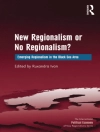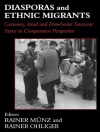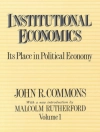On 8 January 2012 the African National Congress (ANC) of South Africa, the oldest African nationalist organisation on the continent, celebrated its one hundredth anniversary. This historic event has generated significant public debate within both the ANC and South African society at large. There is no better time to critically reflect on the ANC’s historical trajectory and struggle against colonialism and apartheid than in its centennial year. One Hundred Years of the ANC is a collection of new work by renowned South African and international scholars. Covering a broad chronological and geographical spectrum and using a diverse range of sources, the contributors build upon but also extend the historiography of the ANC by tapping into marginal spaces in ANC history. By moving away from the celebratory mode that has characterised much of the contemporary discussions on the centenary, the contributors suggest that the relationship between the histories of earlier struggles and the present needs to be rethought in more complex terms. Collectively, the book chapters challenge hegemonic narratives that have become an established part of South Africa’s national discourse since 1994. By opening up debate around controversial or obscured aspects of the ANC’s century-long history, One hundred years of the ANC sets out an agenda for future research. The book is directed at a wide readership with an interest in understanding the historical roots of South Africa’s current politics will find this volume informative. This book is based on a selection of papers presented at the One Hundred Years of the ANC: Debating Liberation Histories and Democracy Today Conference held at the University of Witwatersrand, Johannesburg from 20–23 September
2011.
Table of Content
First Keynote Address
Fragmentation and Cohesion in the ANC: The First 70 Years – Philip Bonner
Second Keynote Address
A Continuing Search for Identity: Carrying the Burden of History – Joel Netshitenzhe
Chapter 1 One Hundred Years of the ANC: Debating Struggle History After Apartheid – Jon Soske, Arianna Lissoni and Natasha Erlank
Chapter 2 Religion And Resistance In Natal, 1900–1910 – Norman Etherington
Chapter 3 Christianity and African Nationalism in South Africa in the First Half of the Twentieth Century – Natasha Erlank
Chapter 4 Charlotte Maxeke: A Celebrated and Neglected Figure in History – Thozama April
Chapter 5 Imagining the Patriotic Worker: The Idea of ‘Decent Work’ in the ANC’s Political Discourse – Franco Barchiesi
Chapter 6 Popular Movements, Contentious Spaces and the ANC, 1943–1956 – Noor Nieftagodien
Chapter 7 Unravelling the 1947 ‘Doctors’ Pact’: Race, Metonymy and the Evasions of Nationalist History – Jon Soske
Chapter 8 The Politics of Language and Chief Albert Luthuli’s funeral, 30 July 1967 – Liz Gunner
Chapter 9 Robben Island University Revisited – Crain Soudien
Chapter 10 Shishita: A Crisis in the ANC in Exile in Zambia, 1980–81 – Hugh Macmillan
Chapter 11 Comrade Mzwai – Vladimir Shubin
Chapter 12 Revisiting Sekhukhuneland: Trajectories of Former UDF Activists in Post-Apartheid South Africa – Ineke van Kessel
Chapter 13 Regeneration of ANC Political Power, from the 1994 Electoral Victory to the 2012 Centenary – Susan Booysen
Chapter 14 The ANC: Party Vanguard of the Black Middle Class? – Roger Southall
Chapter 15 Globalisation, Recolonisation and the Paradox of Liberation in Southern Africa – John S Saul
About the author
Ineke van Kessel is a historian and retired as Research Fellow from the African Studies Centre at Leiden University.












